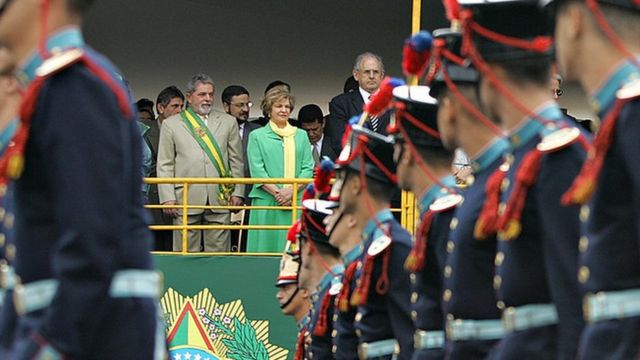Brazil failed the military
Érico Esteves Duarte
There is generalized unease with the Brazilian military, expressed by President Lula on the last 12th, which was generalized in the press and social media. This sentiment may be misplaced because, if the military failed in the January 8 crisis, the Republic has been failing the military for much longer.
When it comes to the military, all the presidents we've had since re-democratization failed because they played little role as commanders in chief. None of them made reform of the armed forces and the Ministry of Defense a priority, delegating or delaying and missing opportunities for greater presidential participation. The failure to reform effectively failed to comply with article 91, paragraph 1, item IV of the Constitution, which establishes that the National Defense Council is responsible for "studying, proposing and accompanying the development of initiatives necessary to guarantee national independence and the defense of the democratic State". This council never fulfilled its role, and the military are more consulted than subordinated to the priorities of the Presidency of the Republic. As a result, military activities are submitted to almost no external evaluation.
Worse, even with the history of military interventions in national politics, various governments have done nothing to reduce the political power of the military. On the contrary, they have become increasingly dependent on military agencies to build roads and bridges, distribute water, contain epidemics, fight organized crime and even guarantee elections, among other civil functions. As long as the military is central to public administration, it will have political involvement and bargaining power to remain insulated from civilian control.
Congress failed the military by never overseeing and intervening when the Executive failed to fulfill its role. Federal deputies and senators failed the military when they accepted a marginal role in the formulation of defense policy, and instead of developing qualified advisory oversight and public debate, submitted to the lobbying of formal and informal representatives of the military in the Legislature. Worse than that, Congress has always acquiesced, even when not necessary, to an exaggerated use of the military in civilian functions.
With the exception of Nelson Jobim, the Ministers of Defense failed the military by failing to amass qualified personnel, producing an unstructured hierarchy with limited effort to advance reform. None of them were able to develop a hierarchy adequate for analysis and management that could be independent of the military. Worse, they accepted that the military divvied up the Ministry of Defense by incorporating their fiefdoms and private agendas.
The Brazilian Judiciary failed the military when it did nothing to reverse the existence, a holdover from the military regime, of a parallel military judicial system with no equivalent in any democracy in the world.
Universities have failed to develop skilled defense expertise and knowledge and have never taken on a more central role in training the military. Most social scientists are averse, if not repulsed, to matters of defense and war in general.
The Brazilian military has failed itself. They never fully accepted being unreserved servants of the Nation and always flirted with the tutelage of democracy. They gave in to the temptation to expand subsidiary missions in exchange for an extraordinary budget, and accepted civilian positions in the Dilma, Temer and, mainly, Bolsonaro governments in exchange for financial gains, privileges and status that deformed and exposed their corporate interests.
Brazil's list of failures is long, and the general unease towards the military is unsurprising. What is surprising is how long it has taken to realize this fact.
Published originally in Portuguese here.
